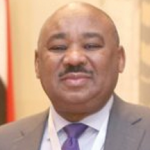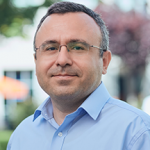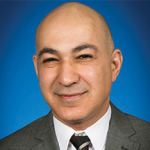Impact of Violent Conflict on Lives and Livelihoods in the MENA Region
FromOct 26, 2020 To Oct 26, 2020
Online Webinar
The MENA region is characterized by several interrelated socio-economic trends including rapidly growing populations, on average high degrees of (youth) unemployment, strong gender differences in terms of labor market participation, and political radicalization. The countries in the region often have weak and/or authoritarian central government institutions, declining public revenues from natural resources except in a few very resource-rich countries, and climate change impacts on agriculture and water management. Above all, insecurity and violent conflict of various intensity shape societies in several MENA countries directly or indirectly, via conflicts in neighboring countries. The conflicts differ in cause, nature, duration and intensity and hence have diverse and changing impacts on people. More importantly, these impacts may in turn compound the other aforementioned trends by, possibly, affecting population growth, unemployment, gender norm differentiation, political radicalization, weakening state institutions and increased needs for but reduced abilities to fund public services and infrastructures.
Despite these fundamental and interlinked societal challenges, the MENA region is comparatively under-researched in terms of applied micro-level analysis, both by economists and other social scientists. In particular, it is not very well understood how some of these security and socio-economic trends shape each other. For a given conflict, there are a multitude of topics that can be addressed, ranging from demography, social issues, health, education, labor markets and migration via agriculture, product markets and trade to social norms, attitudes and political behavior and, of course, to the role and the effectiveness of policies and interventions.
Against this backdrop, ERF launched a call for papers under the title of the workshop. Several subthemes were identified, such as the impact of conflict, insecurity and fragility on people and how conflict impacts “victims” across these many domains, and the impact of women on peace-building. The review process led to the acceptance of eight proposals. The objective of the current workshop is to provide a platform for discussing the draft papers and their preliminary findings among authors and experts in the field in order to improve the final output.
Put in a larger framework, the work on this project is part of a larger program of work carried out by ERF, under the thematic leadership of Samir Makdisi and Raimundo Soto, on Peace-Building and reconstruction in conflict affected Arab countries.
Agenda
Date
26/10/2020
Time
From 3:00 pm To 6:00 pm
Speakers

Research Fellows
Ibrahim Elbadawi
Development Studies & Research Forum, Dubai

Authors
Tilman Brück
Founder and Director of ISDC - International...

Research Fellows
Semih Tumen
Professor of Economics, TED University, Turkey

Research Fellows
Georges Naufal
Associate Research Scientist, Public Policy Research Institute,...

Research Fellows
Bassam Yousif
Professor of Economics, Indiana State University

